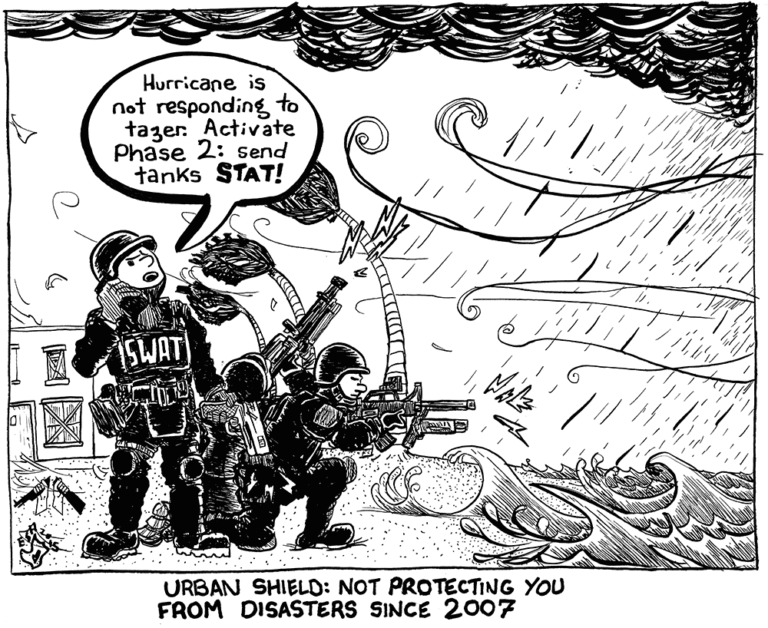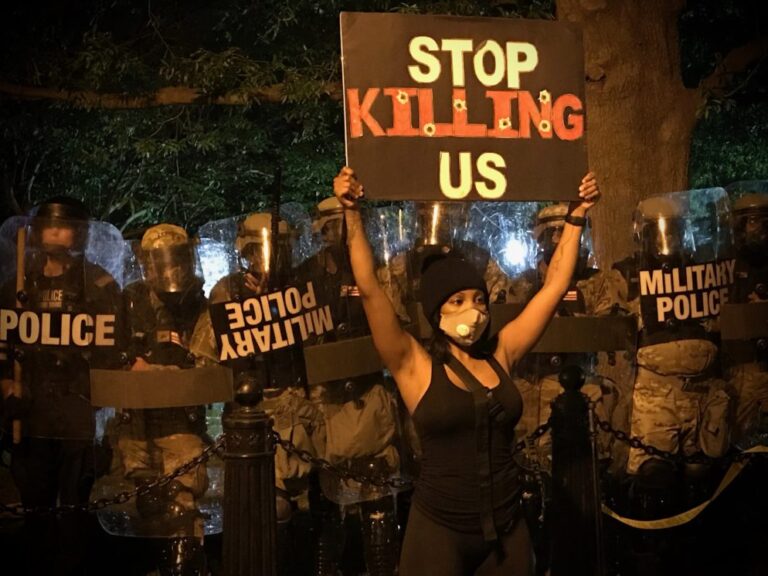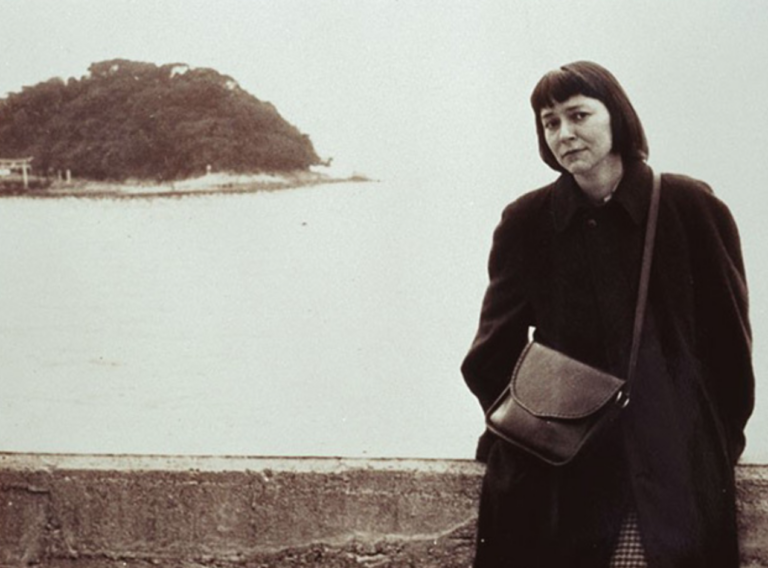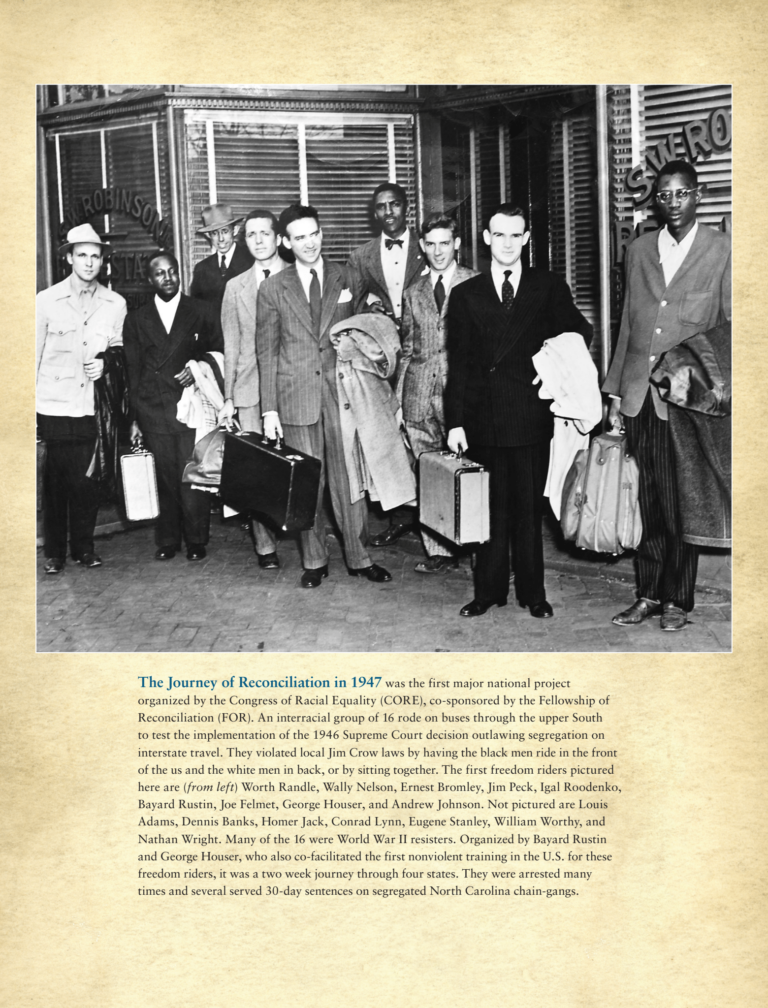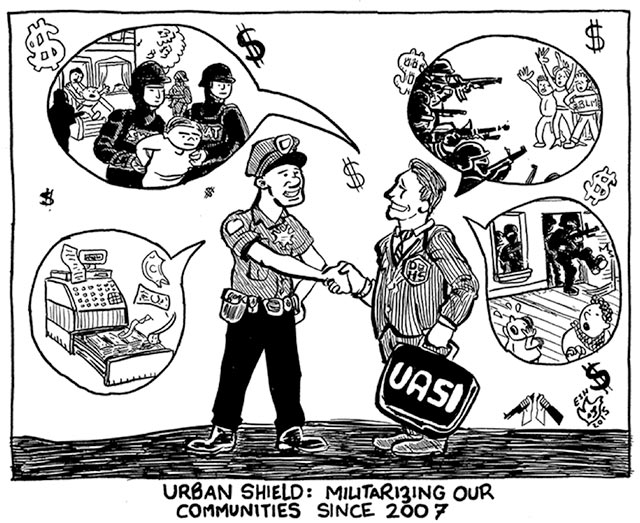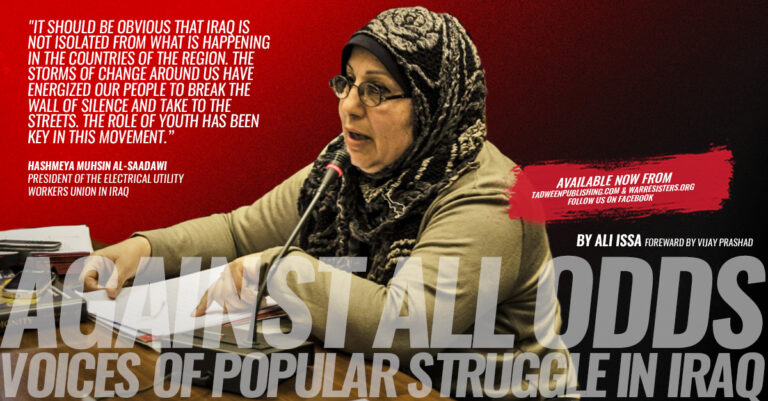Bayard Rustin’s 1965 WRL Peace Award Acceptance Speech
– April 27, 1965 –
A.J. Mustei: I present to Bayard Rustin at this 42nd annual dinner of the War Resisters League the 7th Annual Peace Award and the scroll, which I am presenting to him, reads as follows:
To Bayard Rustin, pacifist, who has suffered for his convictions and held firmly and courageously to them. Known in his own and many other lands as an eloquent and penetrating analyst of social forces and exponent of nonviolence. Imaginative and creative strategist of nonviolent action, who has made an incalculable contribution to the struggle for racial equality in this country and is a tireless seeker for more effective ways to advance the cause of freedom, peace, and humanity throughout the world.
Bayard Rustinii: Actually, friends, the War Resisters League has done so much for me that I should be giving it some kind of an award. And since I’m relatively penniless, I think the only thing for me to do tonight is to make the appeal. But knowing that Eddieiii would be beside himself since he’s done that for the last 20 years, I will not do that, Eddie, except indirectly.
I would like to say to you that I sincerely believe that I’m one of the most fortunate people on Earth for having been associated with the League.
It was you people who … put up your money to make it possible for me to go to England and help set up the first Aldermaston marchiv. For that I thank you.
It was you who had faith in me and permitted me on numerous occasions to go to Africa, help … the revolutionary movement there and the privilege of going in the Saharav and being arrested by the French and trying to stop the testing of bombs there. It was a great experience and I would like to do it again if they are determined to carry on. If so, I’ll be back for money. Do it.
It was you for whom I want to thank that I had marvelous experiences in Indiavi, learned a good deal about the Gandhi movement, there directly from the people who are engaged in it.
It was the War Resisters League which made it possible [during] one period in my careervii when I was not able really to make a contribution that I wanted to make. You had faith enough in me to call me to work and this I shall never, never forget.
It was the War Resisters League that made it possible for me to work for a number of years and to continue working with Martin Kingviii, which undoubtedly is again one of the few few opportunities that anyone could ask for. Not that King is God or perfect but he is a symbol of a very great movement and I feel that I should be awarding the League for having given me the opportunity to be a part of that early period when few people were coming to King’s assistance.
It was the War Resisters League and your contributions and your faith that made it possible for me to work for so many years with Mr. Randolphix in connection with the youth marchesx, the March on Washingtonxi.
And if I were to say anything, I think I should thank you for your long-suffering. Not that you didn’t believe in everything that I was being permitted to do. You did. But there were times when things, which were more exclusively League work and that sometimes did not get done, that your patience made possible.
It was the War Resisters League that made it possible for some of us to organize the fast in Washington.xii It was one of the most beautiful things I’ve ever seen. Easter some years ago around the bomb.
And I could go on all night telling you how the League has enriched me.xiii And then I should really be doing something dramatic for the League if I were able to.
All that I can pledge is that I believe firmly in nonviolence. I believe firmly that no basic change can come without social, economic and political and psychological revolution. And that I will pledge to the best of my ability to hold firmly with you to these ideas.
And in the lighter vein, I think that I developed a totally new way of creating people for the movement. This was my great contribution. A.J. thinks it was his but it wasn’t really.
And I’m glad in … that occasion to see Ann Morrissett Davidonxiv here tonight, because I remember once when we were talking in Greenwich Village at one point when she had a little flat over there about how tough it was to get people into the movement. So, I said, Ann, you know, there’s only one way really to go about this in this period, and that is if we cannot convince them, produce them. And she brought her first effort here tonight and that’s the reason I was so profoundly interested in that trial.
And I want to conclude what I have to say tonight by telling you a story. Many people do not know that during the Civil War — and people do not know this when they talk about the new Negro and the new desire of Negroes for freedom — that one of the most terrible problems — and I think this may have led to Sherman’s tremendous frustration and the march to the sea in the burning of Atlanta — I would hope not but it may have. One of his great problems was that the Negro slaves, loving freedom so much, just left the plantations by the thousands and thousands, and attached themselves to Sherman and just marched behind him.
And during this period, they sang a song, which is tremendously important today. And I would like to conclude what I have to do by singing that song for you. I do this fundamentally because the young lady sitting over here who works with me every day, Miss Rachelle Horowitz,xv said today, “Look, I hear you so much, please don’t talk too long tonight.” I promised her that if she would come, I’d let her hear Milton Mayerxvi and I’d get down from here in a few minutes. So that led me to sing this song.xvii Now, on the other hand, she doesn’t like to hear me sing either, but that’s another matter.
[singing]
Oh, oh, day,
Oh, oh, day,
Oh, oh, day, daybreak’s a coming
Oh, oh, day, daybreak’s a coming
Day done broke into my soul
Hallelujah
Freedom day, daybreak’s a coming
Freedom day, daybreak’s a coming
Freedom done broke into my soul,
Hallelujah
Justice day, justice is coming.
Justice day, justice is coming.
Justice done broke into my soul
Hallelujah
Peaceful day, peace is a coming
Peaceful day, peace is a coming
Peace done broke into my soul
Hallelujah
Oh, oh, day, daybreak’s a coming
Oh, oh, day, daybreak’s a coming
Day done broke into my soul
Hallelujah
NOTES
i Before presenting the award to Rustin A.J. Muste (1885-1967), WRL EC, former Executive Director of the Fellowship of Reconciliation, founder of the Committee for Nonviolent Action, and a leader of the anti-Vietnam War movement, gave a report on tensions within World Peace Council between Soviet and Chinese blocs during the Stockholm WPC meeting he just attended, ajmuste.org/aj_mustes-life-of-activism and en.wikipedia.org/wiki/A._J._Muste
ii Bayard Rustin (1912-1987) was on the WRL staff from 1953 to 1965, first as Program Director, then Co-Secretary (with Ralph DiGia), then Executive Secretary
iii Edward Pacifist Gottlieb (1905-2003), public school educator, poet, longtime WRL member, and chair of the League from 1960 to 1968 (Mar-Apr 1960 WRL News)
iv The first Aldermaston march, from London to the British atomic establishment in Aldermaston 52 miles away, was organized during Easter 1958 by the Direct Action Committee Against Nuclear War. This march featured the first use of Campaign for Nuclear Disarmament nuclear disarmament (“peace”) symbol en.wikipedia.org/wiki/Aldermaston_Marches
v In 1959 after France announced plans to test their first nuclear weapon in Africa, Bayard Rustin and A.J. Muste joined a quickly-assembled international team of peace activists, which drove from Ghana into the Sahara test zone (Jan-Feb 1960 WRL News)
vi Rustin made several trips to India to study the Gandhian movement and meet with the nonviolence campaign activists, including the War Resisters’ International Triennial in December 1960 (May-Jun 1961 WRL News)
vii This is a reference to Rustin’s 1953 firing from FOR following his arrest in California for homosexual activity, then being hired by WRL six months later
viii From 1956 to 1965 Rustin was periodically released from WRL staff to do civil rights organizing work with Martin Luther King, Jr., and others
ix A. Phillip Randolph (1889-1979), labor organizer (notably, Brotherhood of Sleeping Car Porters) and civil rights activist, was a mentor to Rustin for civil rights work
x Rustin organized the 1958 and 1959 National Youth Marches for Integrated Schools
xi Rustin was the chief organizer of the historic August 28, 1963, March on Washington for Jobs and Freedom that attracted 250,000 people (Sep-Oct 1963 WRL News)
xii May refer to the 1962 Easter Peace Mobilizations against nuclear weapons (May-Jun 1962 WRL News) or possibly the 100-hour fast for peace in Washington during the Cuban missile crisis in October 1962 (Nov-Dec 1962 WRL News), obviously not during Easter, or something else
xiii If he had, he might have mentioned meetings with Bertrand Russell (Mar-Apr 1961 WRL News) and noted Soviet author Ilya Ehrenburg (Jan-Feb 1963 WRL News), his October 1961 debate with Malcolm X, and his travel to Dar es Salaam, Tanganyika to help organize the World Peace Brigade (May-Jun 1962 WRL News)
xiv Ann Morrissett Davidon (1925-2004), pacifist, feminist, essayist, and WRL EC member, attended the dinner with her one-year-old daughter Ruth Davidon
xv Rachelle Horowitz (1939- ), transportation coordinator for 1963 March on Washington and assistant to Rustin 1964-1973
xvi Milton Mayer (1908-1986), journalist and co-author (with Rustin) of the pamphlet “Speak Truth to Power,” presented an analysis at the dinner of the problem of applying nonviolence to the struggle for social justice (May-Jun 1965 WRL News)
xvii Rustin was an accomplished singer (and lute player) of spirituals, freedom songs, and Elizabethan songs. See discography at www.discogs.com/artist/1178548-Bayard-Rustin
– Transcribed and annotated by Ed Hedemann
Share

